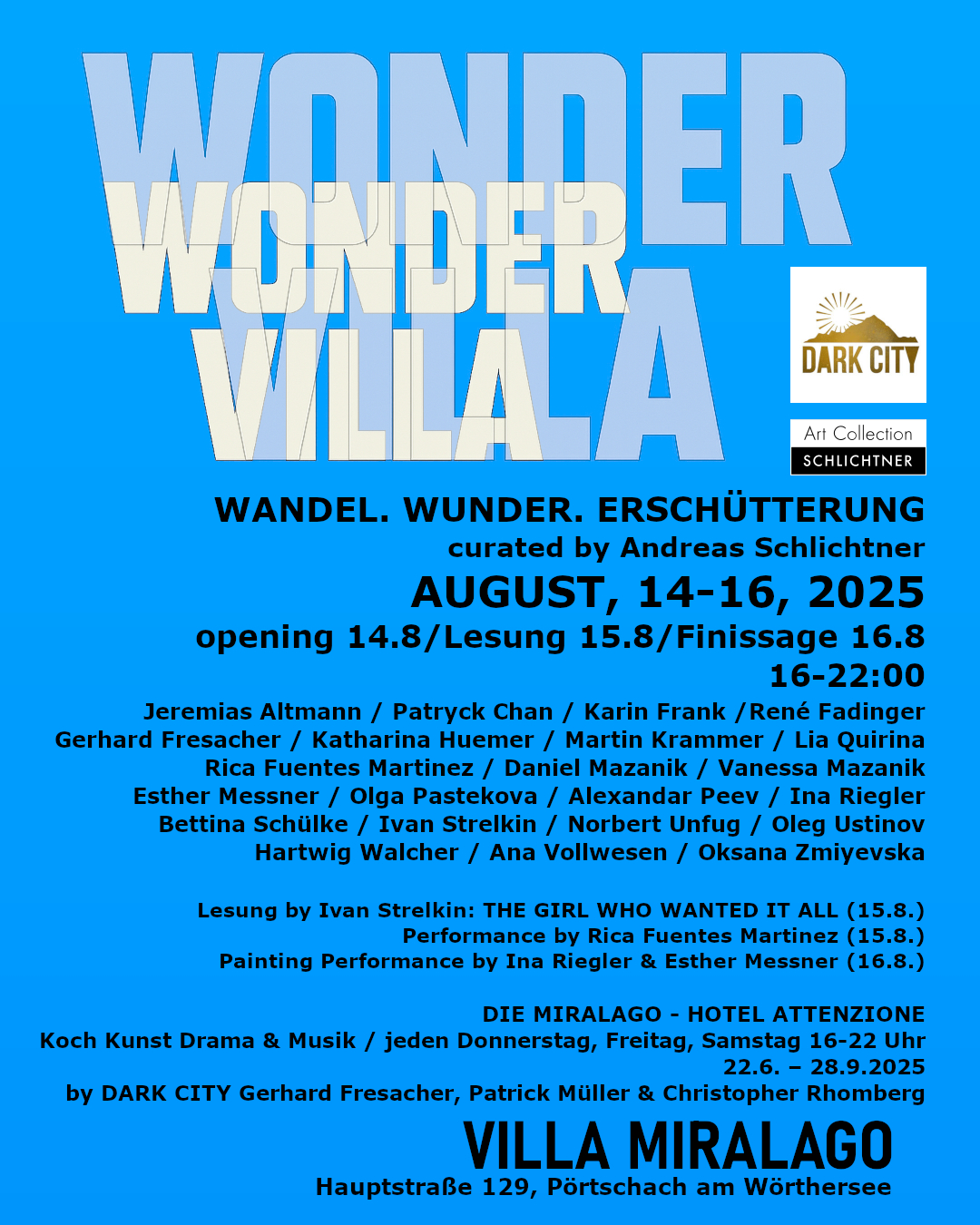WONDER VILLA. Change. Wonder. Shock. August 14–16, 2025 Villa Miralago ...

Fotocredit: photo Art Collection Schlichtner
WONDER VILLA
Change. Wonder. Shock.
August 14–16, 2025, curated by Andreas Schlichtner
Jeremias Altmann / Patryck Chan / Karin Frank / René Fadinger / Gerhard Fresacher / Katharina Huemer / Martin Krammer / Lia Quirina / Rica Fuentes Martinez / Daniel Mazanik / Vanessa Mazanik / Esther Messner / Olga Pastekova / Alexandar Peev / Ina Riegler / Bettina Schülke / Ivan Strelkin / Norbert Unfug / Oleg Ustinov / Hartwig Walcher / Ana Vollwesen / Oksana Zmiyevska
Opening Thursday August 14, 2025 – 4-10 p.m
Reading by Ivan Strelkin: THE GIRL WHO WANTED IT ALL (15.8.)
Performance by Rica Fuentes Martinez (15.8.)
Painting Performance by Ina Riegler & Esther Messner (16.8.)
MIRALAGO HOTEL ATTENZIONE
Cooking, Art, Drama & Music / every Thursday, Friday, and Saturday 4-10 p.m. / June 22–September 28, 2025
by DARK CITY Gerhard Fresacher, Patrick Müller & Christopher Rhomberg
VILLA MIRALAGO, Hauptstraße 129, 9210 Pörtschach am Wörthersee. Boathouse, beach.
Change. Miracles. Shock.
Our time, with its crises and debates, oscillates between emotion and reason, but aren't they equal, and is understanding even a key to grasping emotions and the poetry of our everyday lives? (according to Gerhard Fresacher).
So how do we perceive? Where do we tend? Toward feeling or reason? Emotio or ratio?
When something is changing, it is noticeable. Miracles happen; we believe in them. Shocks are perceptible tactilely or emotionally. But can this also be explained scientifically and rationally?
René Descartes' "Cogito ergo sum – I think, therefore I am." The Enlightenment, Hegel, and Kant, taught reason as the basis of perception. On the other hand, the Hausväter literature and Fichte attributed emotional character traits particularly to the female gender. All of this continues to have a profound influence today, and reason is given particularly high priority in our everyday lives. "Rational and logical thinking," "explaining the world according to calculable laws," "fact-based action" are contrasted with neglected "emotional perception." This explains much—the triumph of transhumanism over posthumanism, rigid gender roles, and the way art is perceived.
